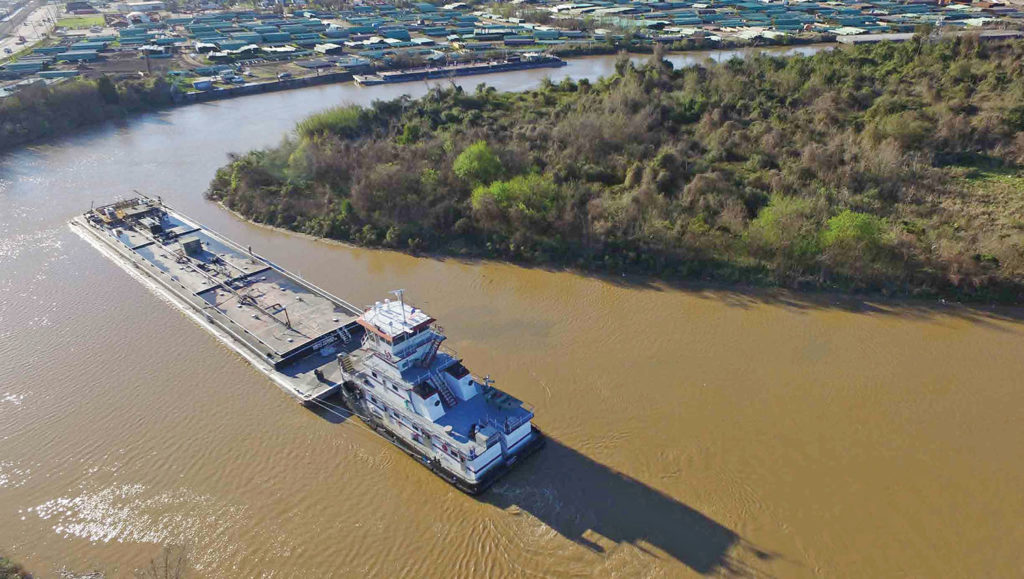VECTOR Researchers to present a case study on the Cumberland/Tennessee River in support of a DHS Port Resilience Guide
Project Information
VECTOR Faculty, Dr. Janey Camp, PI, and Dr. Craig Philip, Co-PI, have received a grant award to conduct a case study on resilience strategies for navigable portions and associated infrastructure of the Cumberland/Tennessee River Couplet System. The project is funded by the DHS Coastal Resilience Center of Excellence in support of an effort to create a national Port Resilience Guide which is being led by the US Department of Homeland Security and US Army Corps of Engineers.
The MIWTS, also considered America’s “inland marine highways” includes 12,000 miles of commercially navigable channels moving commerce to and from 38 states, serving industrial and agricultural centers, facilitating imports and exports at gateway ports. Disruptions and delays in cargo movement often occur on the inland waterway system due to the linear topography and non-redundant functionality. The Guide will include case studies from several sources.
This study will focus on the reliability and resilience of the supply chains in the region to three natural hazards evaluated as independent scenarios: flood, drought, and earthquake. One supply chain of focus will be the movements of petroleum products into the region via both waterways and pipeline. The analysis will consider potential effects of the hazards, opportunities to prevent or minimize consequences, approaches to mediate impacts, improve recovery, and identify alternative responses to severe consequences.

The Cumberland and Tennessee Rivers in blue and the Colonial Pipeline in red.
Key research questions for this case study are:
- To what extent might the inland waterway system’s ability to move commodities to/from the Middle Tennessee region be impacted by flood, drought, or earthquake?
- Where are key ports/docks/terminals along the Tennessee and/or Cumberland River that have potential to provide loading/offloading capabilities for commodities? Are these used along with other potentially redundant transportation modes?
- To what extent can the inland waterway system ensure supply of petroleum products to the Middle and East Tennessee regions during a disruption of the Colonial Pipeline?

The final case study will serve as an appendix to the Port Resilience Guide. The document will characterize the nuances of the inland waterway system through a resilience lens and reveal an inland waterway resilience assessment on the Cumberland/Tennessee River Couplet. The case study will include maps and geographical information, a select group of identified potential disruption scenarios, and suggested resilience strategies for the region.
The research team includes Drs. Philip and Camp along with graduate student, Miguel Moravec, and former student, Katherine Turner.
Stakeholder Involvement
The VECTOR team has assembled a Stakeholder Group to help provide data/input or serve as a member of a technical advisory committee. The first stakeholder meeting took place virtually on September 29th. A collective and informative discussion occurred about resilience in the middle Tennessee region. A recording of the meeting can be heard here.